Sorbitol: Benefits, Uses, and Safety Considerations for Consumers
Sorbitol, a sugar alcohol commonly found in nature, is widely used in the food, pharmaceutical, and cosmetic industries. Derived from fruits like apples, pears, and peaches, sorbitol offers numerous benefits while also requiring consideration of its safety for consumers.
Benefits of Sorbitol
One of the most notable advantages of sorbitol is its ability to provide sweetness without the high calorie content associated with regular sugar. It contains about 60% of the sweetness of sucrose, making it a popular sugar substitute in sugar-free products. Its low glycemic index also makes it an attractive option for individuals with diabetes, as it does not cause rapid spikes in blood sugar levels.
Sorbitol is also known for its humectant properties, which means it helps retain moisture. This quality is particularly useful in the production of cosmetics and personal care products like lotions, shampoos, and lip balms, where it prevents the products from drying out. Additionally, sorbitol’s use in oral hygiene products such as toothpaste and mouthwash helps maintain moisture and prevents the product from becoming too sticky.
Uses of Sorbitol
The versatility of sorbitol makes it ideal for a variety of applications. In the food industry, it is often used in sugar-free gum, candy, and baked goods. It adds sweetness and improves texture, all while reducing calorie content. It also acts as a preservative, extending the shelf life of certain foods.
In the pharmaceutical field, sorbitol is used as a laxative in products designed to relieve constipation. Its ability to draw water into the colon helps soften stools and make bowel movements easier. Sorbitol is also a common ingredient in liquid medications, where it acts as a stabilizing agent and improves taste.
Safety Considerations
Although sorbitol is generally considered safe for most people, there are some important safety considerations. Due to its classification as a sugar alcohol, sorbitol can cause digestive discomfort, including bloating, gas, and diarrhea, particularly when consumed in large amounts. This is because sugar alcohols are not fully absorbed by the body and can ferment in the gut.
People with certain conditions, such as irritable bowel syndrome (IBS), may experience more severe gastrointestinal issues when consuming products containing sorbitol. It is always advisable to consult with a healthcare provider if you have any concerns about its effects on your digestive system.


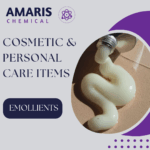 Emollients
Emollients Humectants
Humectants UV Filters
UV Filters Surfactants (cosmetic)
Surfactants (cosmetic) Preservatives (cosmetic)
Preservatives (cosmetic)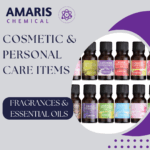 Fragrances and Essential Oils
Fragrances and Essential Oils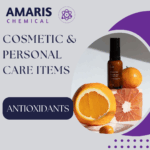 Antioxidants (cosmetics)
Antioxidants (cosmetics)
 Solvents (lab)
Solvents (lab) Chromatography Chemicals
Chromatography Chemicals Microbiology and Cell Culture Reagents
Microbiology and Cell Culture Reagents Biochemical Reagents
Biochemical Reagents Inorganic and Organic Standards
Inorganic and Organic Standards LABORATORY EQUIPMENT & APPARATUS
LABORATORY EQUIPMENT & APPARATUS Spectroscopy Reagents
Spectroscopy Reagents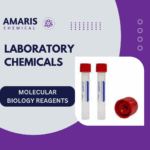 Molecular Biology Reagents
Molecular Biology Reagents
 Precious Metal Extraction Agents
Precious Metal Extraction Agents
 Plasticizers
Plasticizers Polymerization Initiators
Polymerization Initiators Stabilizers
Stabilizers Monomers
Monomers Fillers and Reinforcements
Fillers and Reinforcements Antioxidants (plastics)
Antioxidants (plastics) Colorants (plastic pigments,Dyes)
Colorants (plastic pigments,Dyes)
 Fertilizers
Fertilizers Plant Growth Regulators
Plant Growth Regulators Soil Conditioners
Soil Conditioners Animal Feed Additives
Animal Feed Additives Biostimulants
Biostimulants
 Dough Conditioners
Dough Conditioners Flour Treatments
Flour Treatments Fat Replacers
Fat Replacers Preservatives (baking)
Preservatives (baking)
 Surfactants (cleaning)
Surfactants (cleaning) Builders
Builders Bleaching Agents
Bleaching Agents Enzymes
Enzymes Solvents (cleaning)
Solvents (cleaning) Fragrances
Fragrances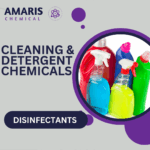 Disinfectant
Disinfectant Metal cleaning
Metal cleaning
 Binders/Resins
Binders/Resins Pigments
Pigments Solvents (paint)
Solvents (paint) Additives
Additives Driers
Driers Anti-Corrosion Agents
Anti-Corrosion Agents Specialty Coatings
Specialty Coatings Functional Coatings
Functional Coatings Application-Specific Coatings
Application-Specific Coatings
 Sealants and Adhesives
Sealants and Adhesives
 Biodegradable Surfactants
Biodegradable Surfactants Bio-based Solvents
Bio-based Solvents Renewable Polymers
Renewable Polymers Carbon Capture Chemicals
Carbon Capture Chemicals Wastewater Treatment Chemicals
Wastewater Treatment Chemicals
 Preservatives (food)
Preservatives (food) Flavor Enhancers
Flavor Enhancers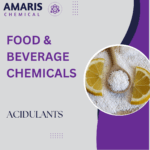 Acidulants
Acidulants Sweeteners
Sweeteners Emulsifiers
Emulsifiers Antioxidants (food)
Antioxidants (food) Colorants (food)
Colorants (food) Nutrient Supplements
Nutrient Supplements Nutraceutical Ingredients
Nutraceutical Ingredients
 Fresh Herbs
Fresh Herbs Whole Spices
Whole Spices Ground Spices
Ground Spices Spice Blends
Spice Blends
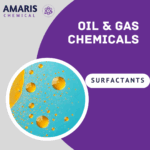 Surfactants(oil)
Surfactants(oil)
 Antibiotics
Antibiotics Active Pharmaceutical Ingredients
Active Pharmaceutical Ingredients Excipients
Excipients Vaccine Adjuvants
Vaccine Adjuvants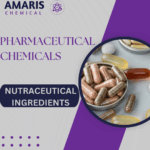 Nutraceutical Ingredients
Nutraceutical Ingredients Solvents (pharmaceutical)
Solvents (pharmaceutical)
 Automotive chemicals
Automotive chemicals Pyrotechnic Chemicals
Pyrotechnic Chemicals


 Vulcanizing Agents
Vulcanizing Agents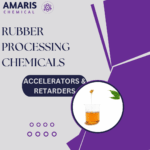 Accelerators & Retarders
Accelerators & Retarders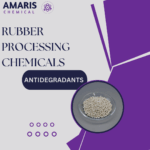 Antidegradants
Antidegradants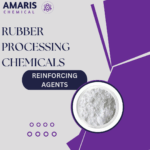 Reinforcing Agents
Reinforcing Agents Plasticizers & Softeners
Plasticizers & Softeners Fillers & Extenders
Fillers & Extenders Blowing Agents
Blowing Agents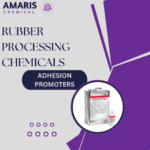 Adhesion Promoters
Adhesion Promoters











